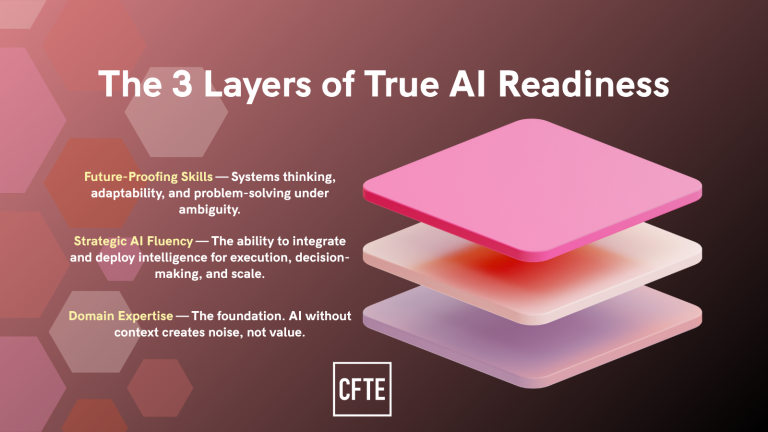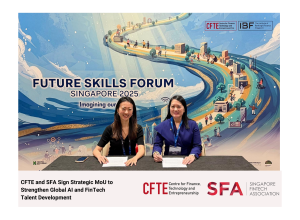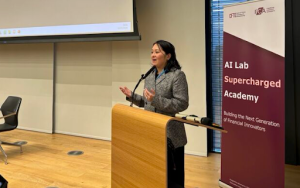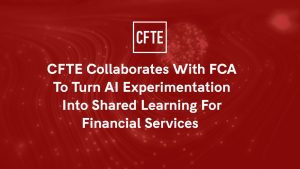AI training is everywhere. Millions have enrolled in courses on prompting, ChatGPT, and data analysis. It’s encouraging to see how quickly professionals are adapting.
But here’s the paradox:
The more we train for tools, the more we expose a deeper gap.
That gap isn’t technical. It’s strategic.
According to CFTE’s AI-fication of Talents whitepaper, the most urgent skills deficit in today’s workforce is not knowing how to use AI tools — it’s knowing how to think in a world shaped by them.
Tool Use Is Table Stakes
In 2024, adding “AI literacy” to your CV became the norm. In many industries, it’s now a hiring baseline. But this surface-level proficiency — while necessary — is no longer a differentiator.
The deeper question is:
Can you redesign workflows? Can you lead teams through systemic change? Can you create new models of value using intelligence at scale?
If not, you’re equipped for today’s tools — but not tomorrow’s systems.
The 3 Layers of True Readiness
CFTE identifies three interdependent layers of capability that define talent relevance in the AI economy:
- Domain Expertise — The foundation. AI without context creates noise, not value.
- Strategic AI Fluency — The ability to integrate and deploy intelligence for execution, decision-making, and scale.
- Future-Proofing Skills — Systems thinking, adaptability, and problem-solving under ambiguity.
This trio creates structural resilience. Without it, even highly trained individuals may be strategically fragile.
Why Strategy Matters More Than Ever
In a traditional skills model, learning a new tool might give you a five-year edge.
In an AI-native model, the pace of change collapses that advantage into five months — or five weeks.
Strategic thinkers are not only able to adapt — they know how to turn uncertainty into leverage.
They ask:
- How do systems interact and evolve?
- What can be optimised, amplified, or reinvented?
- Where do tools shift incentives, value flows, or institutional roles?
This kind of thinking isn’t “extra.” It’s core to remaining relevant.
Institutional Consequences
Most corporate AI training today focuses on usage — not structure.
This creates a workforce that knows how to prompt — but not how to lead.
It’s not enough to make your people efficient. You need to make them strategic.
Leaders must ask:
- Are we developing systems thinkers — or tool users?
- Are we preparing employees to work in intelligent environments, not just with intelligent tools?
- Is our L&D strategy designed for the next decade, or last quarter?
A New Definition of Talent
At CFTE, we believe it’s time to upgrade the definition of “future-ready.”
Not someone who knows the latest platform — but someone who can help reinvent the system it’s operating in.
Strategic thinking is no longer a leadership-only trait. In an AI economy, it’s a survival skill.
Explore the Whitepaper
In The AI-fication of Talents, we unpack these shifts and introduce practical frameworks — like the AI Capability Engine — to help individuals and institutions move from technical upskilling to strategic capacity-building.




